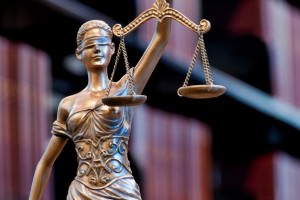Attorney General Guidelines
 Following Congressional hearings and media reports criticizing the FBI’s domestic surveillance activities, in 1976, Attorney General [AG] EDWARD LEVI, U.S. Department of Justice [USDOJ] issued the Attorney General Guidelines for the FBI and other federal law enforcement agencies conducting investigations.
Following Congressional hearings and media reports criticizing the FBI’s domestic surveillance activities, in 1976, Attorney General [AG] EDWARD LEVI, U.S. Department of Justice [USDOJ] issued the Attorney General Guidelines for the FBI and other federal law enforcement agencies conducting investigations.
The Attorney General Guidelines make clear when the FBI can initiate investigation and collect intelligence, conduct Undercover Operations, use Confidential Informants [now called Confidential Human Sources] and monitor/record consensual conversations.
Addressing General Crimes and Racketeering/Terrorism, the Attorney General Guidelines state the FBI can only initiate/pursue a full field inquiry when circumstances “reasonably” suggest a federal crime has been committed or might be committed. The Attorney General Guidelines also mandate that sensitive criminal investigations be brought to the attention of the U.S. Attorney and authorizes the FBI to conduct intelligence investigations for the purposes of identifying criminal enterprises and their capacity to do harm, e.g. Racketeering Enterprise Investigations [REIs] associated with Organize Crime and Terrorism Enterprise Investigations [TEIs] associated with organizations threatening to use physical violence pursuing a political or social agenda.
In the Confidential Informant section [now called Confidential Human Sources], the Attorney General Guidelines make clear procedures used scrutinizing an informant’s “suitability;” directs agents to warn them about their limited authority; and sets parameters about authority to engage in “Otherwise Illegal Activity.” And in the event the FBI discovers an informant has engaged in “unauthorized” illegal activity,” makes clear violations must be reported to FBIHQ and the Department of Justice. And in the event a Criminal Informant is deactivated for cause or some other reason—makes clear any authority permitting “Otherwise Illegal Activity” is revoked and the deactivation reported.
In the Undercover Operations section, the Attorney General Guidelines also mandate—prior to any operation being initiated—both the FBI and Justice Department must address: 1.] agent safety; 2.] any perceived and/or real damages that could be caused to a public institution; 3.] injury to a target’s reputation; 4.] possible defense strategies including “entrapment” and “outrageous” government conduct; and 5.] damages to third parties because of the undercover operation, including financial losses and/or criminal victimization, as a result of the FBI generating a crime conducting its investigation.
_______________________________________________
Looking for an expert concerning the Attorney General Guidelines, interested individuals need only use the website’s search feature, entering the appropriate skill [Attorney General Guidelines] and geographical area, and thereafter make contact with the listed expert—using the contact information provided.
________________________________________________
Retired FBI Agents and Analysts, interested in securing a Directory listing and/or a personal email address, need only submit a brief online application to join the website.
[NOTE: Information contained herein can be found in the Attorney General Guidelines signed by AG JOHN ASHCROFT, dated May 30, 2002, and the Special Report issued by the Justice Department’s Office of Inspector General, dated September 2005. Additionally, on September 29, 2008, AG MICHAEL B. MUKASEY issued the Attorney General Guidelines for Domestic FBI Operations detailing/explaining the FBI’s Authorities and Principles, Investigations and Intelligence Gathering, Assistance to Other Agencies, Intelligence Analysis and Planning, Authorized Methods, and Retention and Sharing of Information.]
